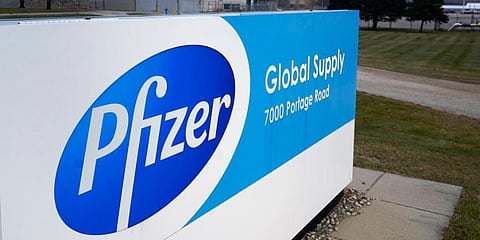

NEW DELHI: Those fully vaccinated with the Pfizer-BioNTech vaccine are likely to have more than five times lower levels of neutralising antibodies against the Delta variant first identified in India, compared to the original COVID-19 strain, says a study published in The Lancet journal.
The study also shows that levels of these antibodies capable of fighting the virus are lower with increasing age, and that those levels decline over time, providing additional evidence in support of plans to deliver a booster dose to vulnerable people.
This line of thinking supports plans in the UK to reduce the gap between doses since they found that after just one dose of the Pfizer-BioNTech vaccine, people are less likely to develop antibody levels against the B.1.617.2 variant as high as those seen against the previously dominant B.1.1.7 (Alpha) variant, first found in Kent.
The team, led by researchers from Francis Crick Institute in the UK, noted that levels of antibodies alone do not predict vaccine effectiveness and prospective population studies are needed. Lower neutralising antibody levels may still be associated with protection against COVID-19.
The study analysed antibodies in the blood of 250 healthy people who received either one or two doses of the Pfizer-BioNTech vaccine, up to three months after their first dose. Researchers tested the ability of antibodies to block entry of the virus into cells, so called 'neutralising antibodies', against five different variants of SARS-CoV-2.